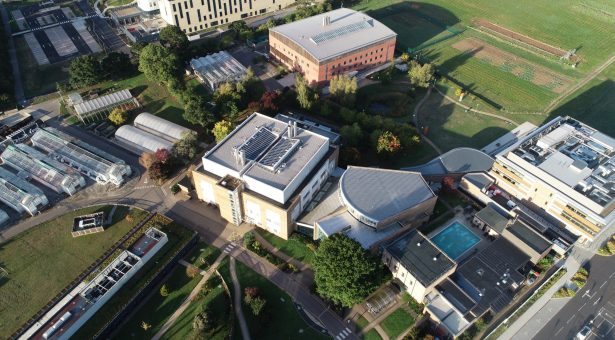
Norfolk and Waveney is to receive a major boost to its capacity for COVID-19 testing of frontline NHS workers thanks to the help of scientists at Norwich Research Park.
Volunteers from all research organisations on the Park are working together with staff at the Norfolk and Norwich University Hospital (NNUH) to help with the isolation and detection of viral RNA, part of the vital testing process of NHS workers.
NNUH is working in partnership with the Earlham Institute, John Innes Centre, The Sainsbury Laboratory, Quadram Institute Bioscience, the University of East Anglia, Eastern Pathology Alliance and the Cotman Centre. The additional resource could see testing capacity increase more than seven-fold in the long-term, providing thousands rather than hundreds of tests each day while still delivering results within 24 hours.
Frontline NHS staff in key roles, such as critical care workers, paramedics, emergency department staff, and primary care staff will be eligible if they or a household contact develop symptoms of COVID-19. A facility at Norwich Research Park will be dedicated to the testing of NHS staff and their household contacts.
By substantially reducing the 7 or 14 day self-isolation period, NHS staff will be able to return to work more quickly to provide care for patients across Norfolk and Waveney.
A small number of appointments will be offered initially across the Norfolk and Waveney health system, with the capacity increasing as the volunteers from Norwich Research Park boost the ability of the NHS to test staff. The Park is also providing a dedicated drive-through facility where swab samples can be safely collected, before being sent to the labs for testing.
In the meantime, members of the public should continue to follow the advice available from the NHS 111 website.
Sam Higginson, Chief Executive at NNUH, said: "Quick and reliable testing is an essential part of the national effort to protect the NHS and save lives.
"We are starting to test key clinical staff for COVID-19 in line with national guidelines. The expectation is that staff in key clinical roles will be tested to support our staffing through the pandemic."
Testing for the virus involves collecting viral RNA – the material found in a virus that contains the instructions for how to make copies of itself – and then amplifying the sample to create enough material for reliable testing. This is usually done through polymerase chain reaction (PCR), which ensures even tiny trace amounts of viral RNA become detectable.
Many of the scientists based at Norwich Research Park already have relevant expertise in the molecular techniques necessary for COVID-19 testing, allowing them to quickly get to work with minimal training.
David Parfrey, Executive Chair of Anglia Innovation Partnership LLP, the body responsible for the running and development of Norwich Research Park, said: "For most of us, this is the biggest crisis we have faced in living memory but it is really heartening to see the level of collaboration that is happening at Norwich Research Park to combat the many impacts of COVID-19.
"The combination of expertise and commitment shown by our colleagues right across the Park has underlined just how vital a resource this is to the national picture. I would like to thank everyone here for the fantastic support they have given in developing and arranging this vital testing that will make a real difference in helping us to deal with the various challenges that the COVID-19 virus has presented us with."
Professor Dale Sanders FRS, Director of the John Innes Centre, said: "The collaborations and synergies across the Norwich Research Park and the co-location with the UEA and the NNUH means that we, as research institutes, are well provisioned to assist in situations where the skills of our researchers can be used to help the NHS. We have a large number of well-trained staff who are ready, willing and able to help and it is an honour to be able to volunteer our skills."






